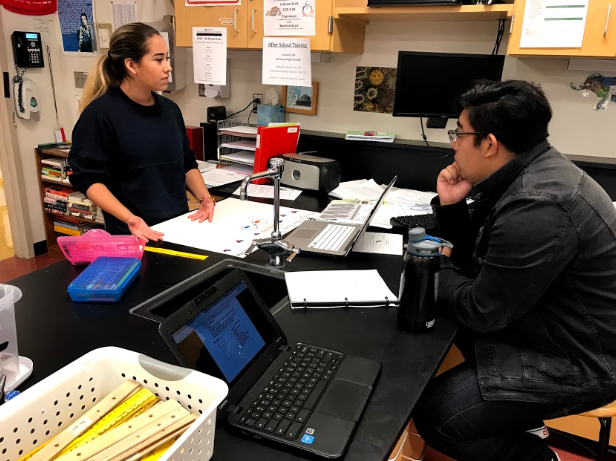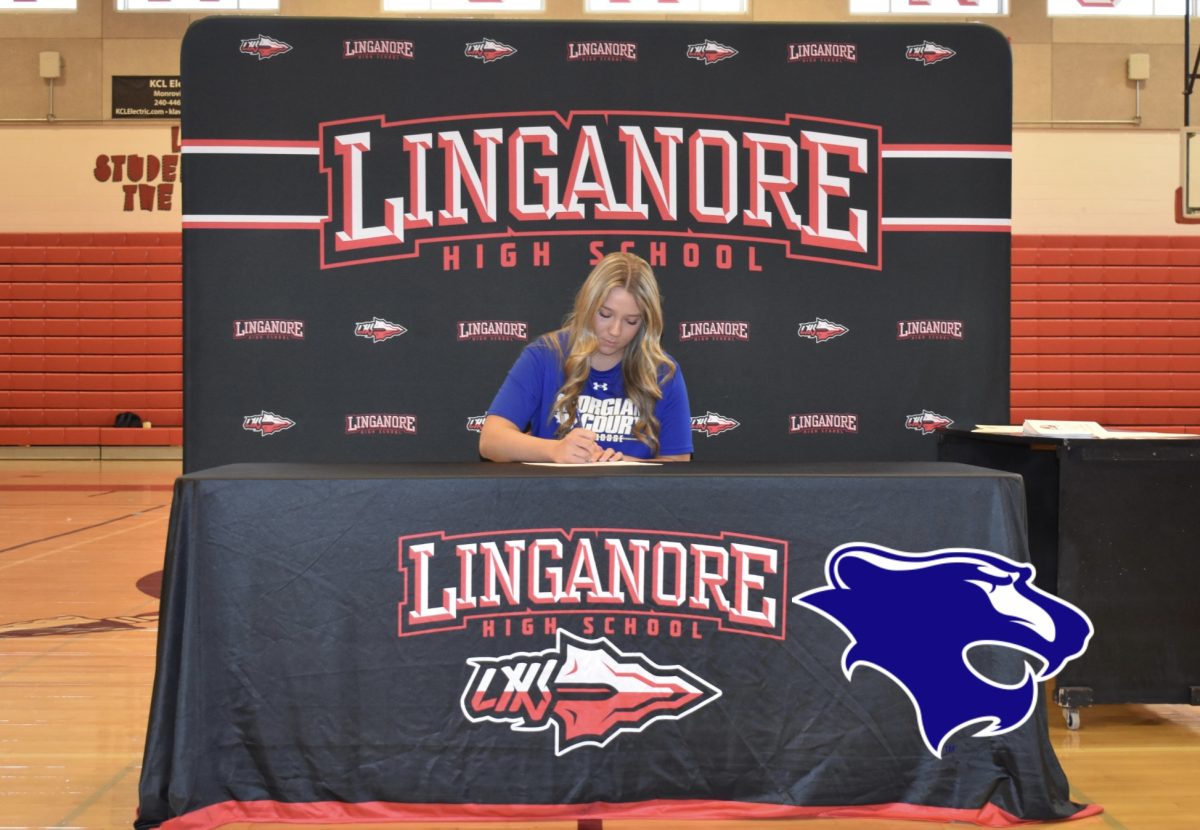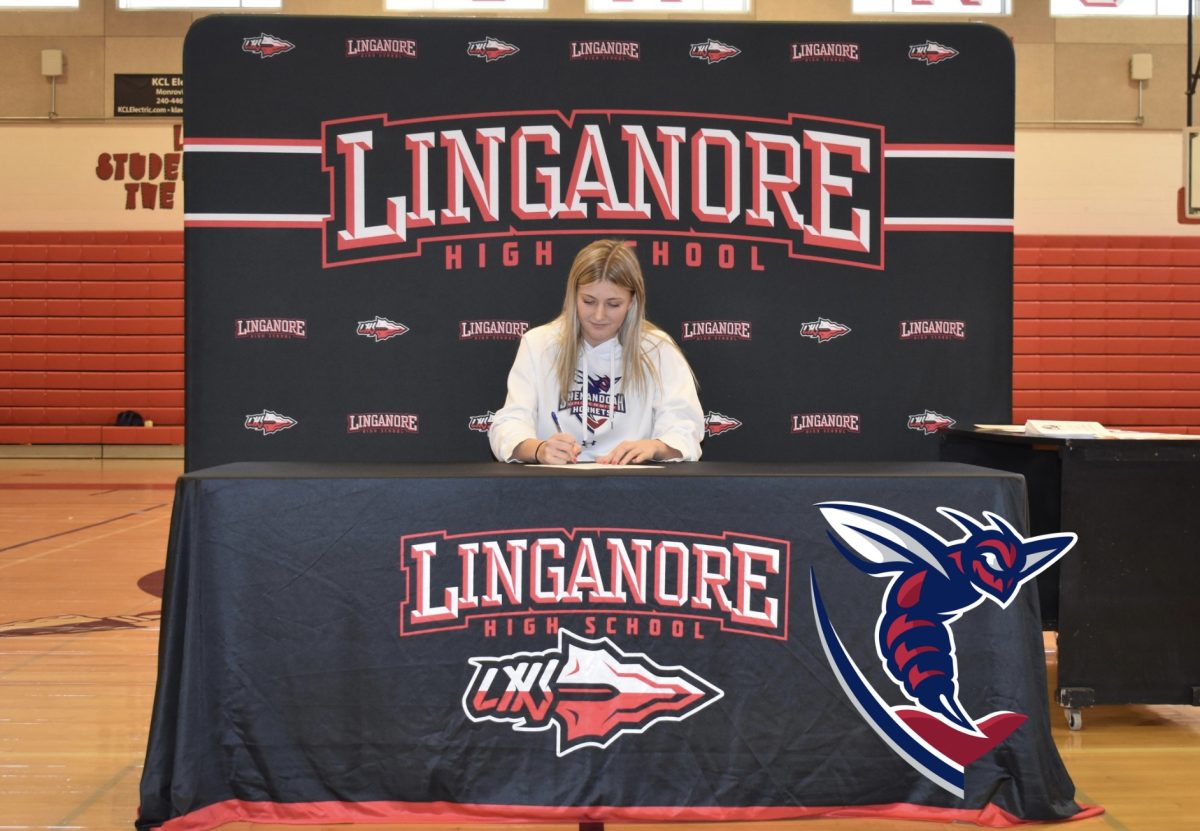AP Biology advocates for water properties
Yazmine Carballo and Marshello Arevalo discuss their campaign strategy
September 22, 2018
On September 21, Beth Ericsson’s AP Biology class campaigned for the property of water they thought was the best. This project allowed students to get a better understanding of specific properties of water.
Each group was assigned a different property of water. Then, they had to make a poster and convince their classmates why their property was the best, as if they were holding an election.
Unlike other substances, water has special properties. For instance, water is a universal solvent, due to its polarity. Water is made up of two hydrogen atoms and one oxygen atom. The hydrogen has a slightly positive charge, while the oxygen has a slightly negative charge. Just like a magnet, the hydrogen attracts negatively-charged molecules and the oxygen attracts molecules with a more positive charge. The way that the positive and negatively charged atoms are arranged in the molecule create a slightly negative charge near the oxygen atom and a slightly positive charge near the hydrogen atoms.
This occurrence allows many different compounds, such as salt, to be dissolved into the water. There are a few exceptions to this, however. Oils, on the other hand, are nonpolar. If you were to put water and vegetable oil in a bottle and shake it, eventually the oil and water would both settle separately.
Additionally, ice is unique compared to many other solids: it can float.
If you threw a stone into a pond, it would sink. An ice cube being thrown into the pond would float. The explanation behind this is that water stays together through hydrogen bonding. As water freezes, the molecules move more slowly and the molecules arrange into a hexagon-like pattern. Also, water expands when it freezes, another special property of water. The mass of the ice takes up a lot more space than before and therefore, the density decreases. The formula for density is mass divided by volume, therefore explaining why the ice is less dense than liquid water and is able to float.
Ericsson’s AP Biology class just entered its second unit, biochemistry. Many students are either excited or nervous about learning more about molecules, especially water, as it is a fundamental of life. However, this assignment makes the new unit a little less intimidating.
“…Campaigning has allowed us to learn more in depth about the impact and the characteristics of our specific topic,” said Mara Ruddy, Class of 2019 member. “By comparing our topics, we not only learn more about our own property, but others as well and how [all the properties] work together.”
The students look forward to presenting their campaigns in the upcoming week!






